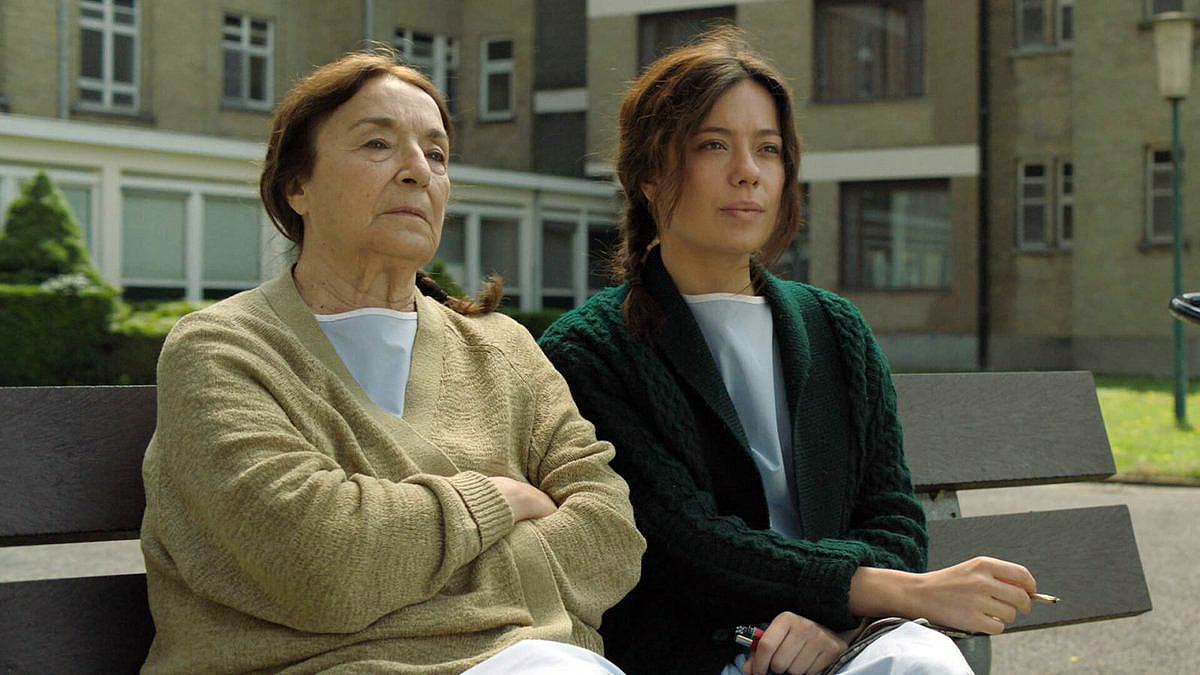Brush past the terrible English title (also sometimes written as “That Was Life” which is marginally more comprehensible but still needlessly generic) and David Martín de los Santos‘ debut feature, titled in Spanish “La Vida Era Eso,” awaits to unfurl its superbly performed, constantly surprising, deeply moving series of everyday miracles on you. Starting off as an odd-couple drama, morphing into a later-life journey of self-discovery while taking a couple of detours into offbeat platonic romance territory, this Transilvania International Film Festival competition film is really a salutary valentine to sudden, unlikely friendships springing forth between strangers, creating unexpected oases of hope and discovery within the desert of everyday routine.
READ MORE: Best Of Cannes 2021: 15 Must-See Movies From The Festival
It starts with 76-year-old Maria (a tremendous Petra Martínez, who somehow manages to project such an interiorized reticence it becomes its own sort of magnetism), a Spanish ex-pat who raised her family in Belgium, having the politest heart attack imaginable. Home alone, with José (Ramon Barrea), her husband of 48 years out of the apartment, she quietly calls for an ambulance: “I have a bad heart,” she explains apologetically to the 911 operator, in her slightly accented French, but no one, throughout the low-keyed lilting uplift of this whole beautifully observed story, has anything but a good heart, however malfunctioning or broken or weary that organ may be.
READ MORE: Summer 2021 Preview: Over 50 Movies To Watch
Maria has a stent put in, and while recuperating, is roomed with Verónica (a lovely firecracker performance from Anna Castillo), a foul-mouthed twentysomething at first blithely unconcerned about the fainting spell that has landed her in hospital. Maria’s irritation with Veronica quickly thaws under the worldly, lively, slightly manic lost-girl warmth the younger woman gives out. And Verónica bonds with Maria almost immediately upon discovering she too is a Spanish transplant to Belgium. Perhaps Veronica is lonelier than she pretends, but then, despite being a wife, a grandmother and a devoted mother to two adult sons, Maria is lonelier than she knows too.
READ MORE: The 100 Most Anticipated Films Of 2021
The relationship between the two women is gorgeously drawn and so deeply felt in the performances of both actresses that the first in a string of gentle surprises is that it will not form the entire story of the film. Castillo has to be as appealing as she is in her few scenes in order to make sense of the lengths Maria will go to for this relative stranger throughout the rest of the film, but de los Santos gives us just enough of their interactions – and not one moment fails to convince – to make Maria’s subsequent mission feel entirely plausible.
READ MORE: The 25 Best Films Of 2020 You Didn’t See
That mission is a strange journey to the south of Spain that Maria takes alone, leaving a note for José about watering the plants till she’s back and failing to pick up her constantly ringing phone. In the dry, windy, one-horse (or rather one-motorbike) factory town that Veronica mentioned as her birthplace, Maria holes up in a rented room and follows a breadcrumb trail of clues around the region. Most often, they dead-end out in the bar, which appears to be the town’s sole amenity and is run by Luca (a wonderfully bearish, shaggy Florin Piersic Jr), a surly ex-trucker whose grudging interactions, in time, form the basis of the second of Maria’s unexpected late-life friendships.
As a debut director, de los Santos is in impressive command of the various departments, from Santiago Racaj’s airy yet intimate cinematography, which is so calmly fascinated by Maria’s careworn face and Martinez’s microscopically restrained expressiveness, to the atmospheric and evocative sound design that practically whips salty wind into your hair and stings your nose with the scent of pomegranate trees. However, De los Santos’ screenwriting is more indulgent and occasionally stumbles before being caught and righted by his uniformly excellent cast. Somehow, Martinez’s tiny yet actually mammoth performance even manages to make non-cringey hay out of the world’s worst trope – granny on a motorcycle – and to make the film’s bittersweet observations about Maria’s newfound independence feel less like a hackneyed life lesson and more a simple, graceful rebuke to all the time we waste doing the things we’re supposed to do, for no other reason than everyone else expects us to.
At almost two hours, it ought to feel longer than it does. But though the story quite often seems to resolve only to open onto a new episode, or a subsequent coda, when each of these and-another-thing scenes is such a pleasure in its own right, it’s never a problem to stay engaged. Indeed, that there are so many perfect potential endings that “Life Was That” ignores in favor of landing on a less neatly rounded-off conclusion also seems entirely appropriate for a film that is all about the power of rediscovering, close to the end of one’s life, the sensual, tactile pleasures of being in the very moment, without thought of how the past brought you here, or of what kind of future awaits. It’s an ending that also, crucially, gives the film entirely to Maria, and Maria alone, which is the only right finale for a story that may ostensibly be about connecting with others, but that is really about finding in those connections, a way back to yourself. [B+/A-]





